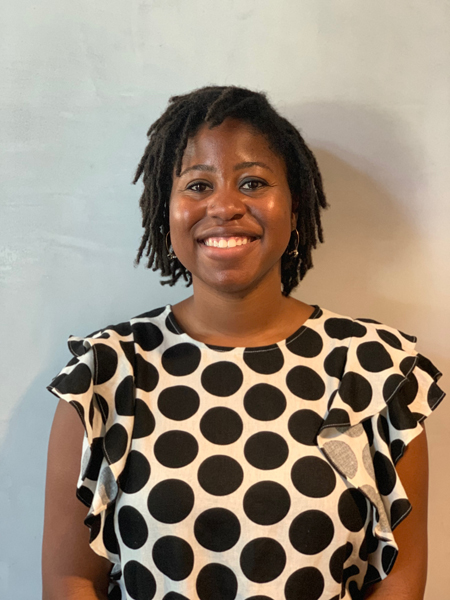Your friendly neighborhood scientist: Nina Moore
Published:
August 20, 2019
Author:
Office of Marketing and Communications

How did you initially become interested in research during your earlier education?
Well, up until my senior year I wanted to be a fashion designer or at least work in the fashion industry. But then we took an anatomy and physiology class and I found it so fascinating. All these processes were happening in the human body as I was sitting there listening to the teacher and that just blew my mind. Later, in college, my immunology class had a lab component, which really opened my mind to hands-on research. I then spent one year at Ohio State University on a post-baccalaureate education program, where I worked in a neuroimmunology lab studying multiple sclerosis. During that time, I remember looking online at the U.S. News & World Report’s rankings and seeing that the Scripps Research graduate school was consistently in the top 10. I applied and was fortunate enough to be selected for an interview and I remember just falling in love with the campus when I came to visit.
What has your experience been like at the Scripps Research graduate school?
It has been amazing so far, not just inside the lab, but also outside of it. I love the talks that the institute puts on with visiting speakers, many of them being Nobel laureates. We’re so lucky to be able to go to such a diverse range of seminars, where you might not have any prior knowledge of that field. I also really enjoy the events that the graduate office organizes, like “sip and paint,” “puppies and pastries” and “coffee with the Dean.” These are such fun events and let you take a quick break away from work to relax with your peers.
So, what kind of work have you been involved with during your first year of lab rotations?
All of the rotations have been excellent and so distinct. I was first with Linda Sherman, who focuses on developing immunotherapies for type 1 diabetes. I then saw a fascinating talk by Chunlei Wu about his lab’s data science. Even though I had no background in computational biology, he agreed to take me as a rotation student and I’m very grateful for it. It was like learning another language, but in the end, it was a great experience and I managed to contribute some code to one of the many projects. Right now, I’m working with Reza Ghadiri, who has such a creative and inspiring approach to science. We are studying the gut microbiome, which seems to contribute to the progression of several different diseases. We’re interested in identifying molecules that could remodel our gut bacteria and prevent or reverse that disease.
Have you thought about how you want to pursue science beyond graduate school?
I have definitely been thinking about it, but I’m not exactly sure of the path just yet. Along with the academic track, I think that scientific policy is an interesting space. I never would have guessed I would end up in a chemistry lab without any chemistry background, but here I am. I guess life can change in the blink of an eye, so I’m open to all of it and I often listen to my gut feeling.
Gut feeling? Gut microbiome?
See! It’s all connecting!

